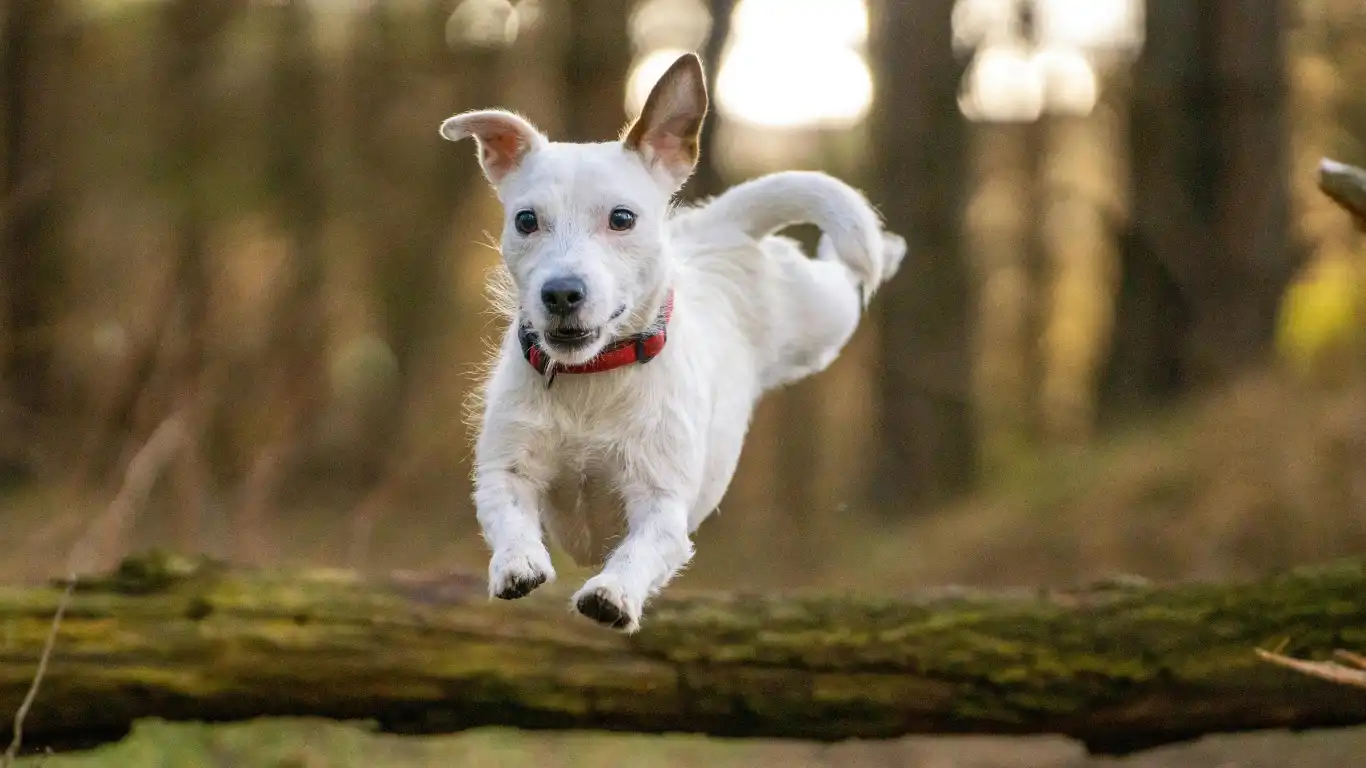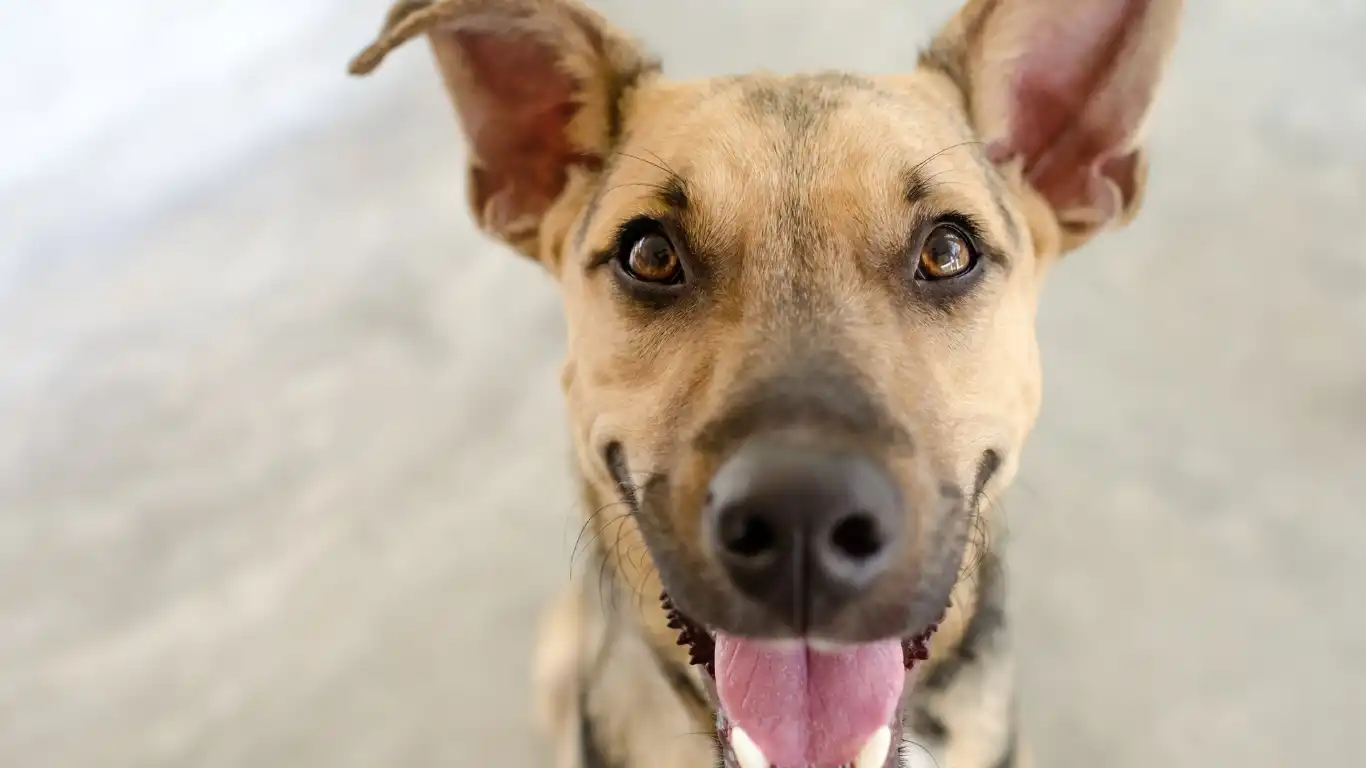10 Natural Ways to Keep Your Dog’s Breath Fresh and Healthy
As a veterinary technician specializing in nutrition, I’ve seen firsthand how much dog owners worry about their pets’ breath. A dog’s bad breath can not only be unpleasant but also a sign of underlying health issues, like poor dental hygiene or even gastrointestinal problems. So, if you’re wondering how to keep a dog’s breath fresh naturally, you’re not alone. Many pet parents seek out ways to tackle this issue without relying on chemical-filled products. Thankfully, there are plenty of natural methods that are safe and effective. In this article, I’ll walk you through some simple, practical tips and insights I’ve gathered over the years to keep your furry friend’s breath smelling fresh—without the need for harsh chemicals or artificial additives.
Why Does Your Dog’s Breath Stink?
Before diving into the natural remedies, it’s essential to understand what causes bad breath in dogs in the first place. While we often associate stinky breath with poor oral hygiene, it’s not always the culprit. Dogs can develop unpleasant breath for several reasons, and it’s important to rule out any medical conditions that might be causing it.
In my experience, one of the most common causes of bad breath in dogs is periodontal disease, which affects the gums and teeth. This is particularly common in small dog breeds, who tend to develop tartar buildup more quickly. But bad breath can also be a sign of other health issues like digestive problems, kidney disease, or even diabetes. That’s why regular check-ups with a vet are key to ruling out any serious conditions.
Common Causes of Bad Breath in Dogs
- Periodontal disease: Plaque and tartar buildup can cause gingivitis and bad breath.
- Gastrointestinal problems: Conditions like acid reflux or stomach infections can contribute to foul-smelling breath.
- Kidney disease: A dog’s breath may smell like ammonia if there are kidney issues.
- Diabetes: Dogs with untreated diabetes often develop fruity-smelling breath due to high blood sugar levels.
How to Keep a Dog’s Breath Fresh Naturally
Now that we know some of the causes of bad breath in dogs, let’s dive into how to keep your dog’s breath fresh naturally. Trust me, as a pet parent, I know how challenging it can be to find a solution that works—especially when you’re trying to avoid chemicals. The good news is that there are several simple, natural ways to freshen your dog’s breath. And I’m not just talking about fancy doggie mints or sprays, but easy-to-implement changes that can make a real difference in your dog’s oral health and overall well-being.
1. Regular Brushing with Dog-Friendly Toothpaste
First things first, brushing your dog’s teeth is one of the most effective and natural ways to keep their breath fresh. I can’t stress this enough—just like humans, dogs need regular dental care. You can use a dog-specific toothbrush and toothpaste, which are formulated to be safe for pets (remember, human toothpaste can be harmful to dogs!).
Brushing your dog’s teeth a few times a week helps remove plaque and tartar before they build up and lead to gum disease or bad breath. If your dog is particularly sensitive about having their teeth brushed, there are other options, like dental chews or wipes that can also help remove buildup.

2. Hydration is Key
Did you know that dehydration can contribute to bad breath in dogs? When your dog isn’t drinking enough water, their mouth becomes dry, which allows bacteria to thrive. And when bacteria build up, it’s not just their breath that suffers—it can also lead to gum disease and tooth decay.
To ensure your dog stays hydrated, make sure they have access to fresh water at all times. You can even make hydration fun by adding ice cubes or dog-safe water enhancers to their bowl, or by offering them ice chips during playtime. If your dog isn’t keen on drinking water, try offering wet food or adding a bit of low-sodium broth to their water to make it more appealing.
3. Fresh Herbs for Fresh Breath
Another natural remedy I love is using fresh herbs to combat bad breath. Herbs like parsley and mint can help neutralize odors in your dog’s mouth. In fact, many commercial dog treats and chews often include these ingredients for a reason!
You can add small amounts of finely chopped fresh parsley to your dog’s food, or give them a sprig of mint as a treat. Not only will it help freshen their breath, but it’s also a good source of vitamins and antioxidants. Plus, they’re completely safe for most dogs in moderation. Just be sure to avoid herbs that are toxic to dogs, like garlic or onion.

4. Dental Chews and Toys
If you’re like me, you know how much dogs love to chew on things. Luckily, chewing is actually beneficial for your dog’s oral health! Chewing on dental chews or toys designed to clean teeth can help reduce plaque buildup and keep their breath fresh. These chews come in various shapes, flavors, and textures, making them enjoyable for your dog while promoting healthy teeth and gums.
Look for dental chews that are approved by the Veterinary Oral Health Council (VOHC). These chews are scientifically proven to help reduce plaque and tartar buildup. Just like with brushing, regular use of dental chews can make a significant difference in your dog’s breath over time.

Additional Tips for Keeping Your Dog’s Breath Fresh Naturally
Aside from the tips I’ve mentioned above, there are a few other habits you can adopt to keep your dog’s breath fresh:
- Regular vet checkups: Regular visits to the vet ensure that any underlying health issues are addressed early.
- Avoid giving your dog table scraps: Many human foods can cause digestive problems and contribute to bad breath.
- Feed a high-quality diet: A balanced diet rich in nutrients will support your dog’s oral health.
5. Natural Supplements for Oral Health
When it comes to keeping a dog’s breath fresh naturally, some pet owners find that adding supplements to their dog’s diet can make a big difference. As a veterinary technician, I’ve recommended natural oral health supplements to many pet parents over the years. These supplements typically contain ingredients like probiotics, enzymes, or even algae, which help support your dog’s oral health from the inside out.
One of the most popular supplements I recommend is chlorophyll, which comes from green plants like algae or spirulina. Chlorophyll has natural deodorizing properties, and it can help neutralize bad odors in your dog’s mouth and digestive system. Another great option is probiotics, which help balance the bacteria in your dog’s gut, improving their overall digestive health and potentially reducing bad breath caused by gastrointestinal issues.

6. Add Crunchy Veggies to Their Diet
Did you know that certain vegetables can act as natural “toothbrushes” for your dog? Vegetables like carrots, celery, and apples can help scrape away plaque and food particles from your dog’s teeth, which contributes to fresher breath. Plus, these veggies are packed with vitamins and fiber, which are great for their overall health.
Incorporating crunchy veggies into your dog’s daily diet is a simple and healthy way to keep their teeth clean. You can give your dog a carrot to chew on as a treat or toss some sliced apples or celery into their food. Not only will it give them fresh breath, but it’ll also give them a fun and healthy snack they’ll love!
7. Coconut Oil for Oral Health
Coconut oil isn’t just great for your skin and hair—it’s also fantastic for your dog’s oral health! Coconut oil has natural antimicrobial properties, which can help reduce bacteria in your dog’s mouth and keep their breath fresh. It’s also safe for dogs to consume in moderation, and many pet parents love adding it to their dog’s food or even using it to rub on their dog’s teeth.
If you want to try coconut oil for your dog’s breath, you can start by adding a small spoonful to their food. You can also gently rub a little coconut oil on your dog’s gums and teeth using your finger or a soft cloth. Just be cautious with the amount you use, as too much coconut oil can upset your dog’s stomach.

8. Dental Rinses and Sprays
If you’re looking for a quick fix to freshen your dog’s breath, dental rinses and sprays can be a great addition to your oral care routine. These products are formulated to fight bacteria and neutralize bad odors in your dog’s mouth. While I always recommend brushing your dog’s teeth as the primary method of maintaining oral health, a good dental rinse or spray can be an easy way to keep your dog’s breath fresh on the go.
Look for dental sprays that contain natural ingredients like aloe vera, chlorhexidine, or essential oils such as peppermint and eucalyptus. These ingredients are safe for dogs and can help neutralize bad breath while promoting healthy gums. You can find dental rinses that are made to be added to your dog’s water, which helps fight bad breath without any extra effort.
9. Regular Vet Visits and Professional Cleanings
While there’s plenty you can do at home to keep your dog’s breath fresh, regular vet visits are essential. As I mentioned earlier, bad breath can sometimes be a sign of underlying health issues, so it’s important to have your dog checked out by a vet if you notice persistent bad breath. In some cases, your dog might need a professional dental cleaning to remove tartar and plaque buildup that regular brushing can’t reach.
During a routine exam, your vet can also assess your dog’s overall health and give you guidance on how to improve their oral hygiene. If your vet recommends a dental cleaning, don’t hesitate to schedule it. A professional cleaning can do wonders for your dog’s breath and dental health, and it’s often necessary to prevent serious dental issues down the road.

10. Be Aware of What Your Dog Eats
What your dog eats plays a huge role in the health of their teeth and breath. Just like with humans, certain foods can contribute to bad breath, while others can help freshen it. For example, feeding your dog a diet that’s high in quality proteins and low in processed ingredients can promote better digestion and oral health. Foods that are rich in antioxidants, like blueberries and pumpkin, are also great for your dog’s immune system and can help reduce inflammation in their gums.
Avoid feeding your dog foods that are known to cause bad breath, such as garlic, onions, or overly fatty foods. These can not only make their breath stink but can also be toxic to dogs in certain quantities. If you’re ever in doubt about what’s safe to feed your dog, check with your vet.
Another thing to keep in mind is that some types of dog food (particularly dry kibble) can help clean your dog’s teeth as they chew. However, it’s important to remember that dry food should never replace proper oral hygiene. It can be a helpful supplement, but it doesn’t do the job as effectively as regular brushing or using dental chews.
11. Monitor Your Dog’s Health for Signs of Illness
Finally, always be on the lookout for any signs of illness in your dog. If your dog’s breath suddenly becomes extremely foul, or if you notice other changes in their behavior, eating habits, or energy levels, it’s important to consult with your vet. Some health conditions, like kidney disease or diabetes, can cause significant changes in your dog’s breath, so it’s important to catch these early.
Regular check-ups and monitoring your dog’s health can help you keep their breath fresh and identify potential problems before they become serious. Your dog relies on you to stay healthy, so take a proactive approach to their care and well-being.
12. Dental Care Products That Can Help Maintain Fresh Breath
As you continue on your journey to keep your dog’s breath fresh naturally, you might be wondering if there are any dental care products out there that can complement your efforts. While brushing your dog’s teeth regularly is the gold standard, there are a variety of products designed to support your dog’s oral hygiene. I’ve seen countless dog owners turn to these products to ensure their pets’ mouths stay fresh and healthy between vet visits.
One product that I highly recommend is oral gels. These gels are typically applied to your dog’s teeth and gums and can help reduce plaque buildup, fight bad breath, and even prevent the development of periodontal disease. Many of these gels contain natural ingredients like aloe vera, which can soothe and heal gums while also tackling bacteria. I’ve found that many dogs tolerate these gels well, especially when introduced gradually into their routine.
Another great option is water additives. These are liquid formulas that you add to your dog’s water bowl. They help fight bad breath and promote healthier gums. While these additives shouldn’t replace brushing or professional dental cleanings, they can be a convenient addition to your dog’s daily routine, especially if your dog isn’t fond of having their teeth brushed.

13. Be Aware of Changes in Your Dog’s Breath
As you continue to work on keeping your dog’s breath fresh, it’s important to be vigilant and aware of any significant changes in their breath. While a little bit of bad breath here and there is usually normal, if your dog’s breath becomes increasingly foul or changes suddenly, it could be an indication of a health problem.
For instance, breath that smells fruity or sweet can be a sign of diabetes, while breath that smells like urine or ammonia can point to kidney disease. If you notice any of these changes, it’s important to schedule an appointment with your veterinarian as soon as possible for a check-up and a thorough examination. Catching these health issues early can make a world of difference in your dog’s treatment and overall well-being.
Another important change to be aware of is if your dog’s bad breath is accompanied by other signs like decreased appetite, lethargy, or difficulty eating. These could be symptoms of dental disease or other systemic issues. If your dog starts avoiding food or shows pain when chewing, it’s definitely time for a vet visit to check for dental problems like broken teeth or gum infection.
14. The Importance of Prevention
In the veterinary field, we always say that “an ounce of prevention is worth a pound of cure,” and that couldn’t be more true when it comes to your dog’s oral health. While many pet owners focus on freshening their dog’s breath, the key to long-term success lies in preventing dental issues before they arise. I’ve seen too many dogs suffer from preventable dental diseases simply because their owners didn’t know what to look for or how to maintain good oral hygiene from the start.
Prevention involves a combination of habits that promote long-term health for your dog’s teeth and gums. Regular brushing, appropriate dental chews, and annual veterinary check-ups are some of the most important steps you can take to prevent dental disease and keep your dog’s breath fresh for years to come.
Maintaining a balanced diet and ensuring that your dog stays well-hydrated also plays an important role in prevention. Dry food or kibble alone may not be sufficient for your dog’s oral health, so adding in fresh veggies, high-quality treats, and even considering dental supplements can help fill in the gaps. Remember, oral health is about consistency over time, so keep up the good work with these habits, and your dog’s breath will thank you!
15. References
For more information on dog dental health and general pet care, you can check out these trusted resources:
16. Disclaimer
The information provided in this article is based on my experience as a Veterinary Technician and my knowledge of pet care. However, it’s important to note that each dog is unique, and what works for one dog may not work for another. Always consult your veterinarian before making any significant changes to your dog’s diet, health routine, or if you suspect a medical condition. Regular veterinary check-ups are essential for maintaining your dog’s health, and any persistent issues with bad breath should be addressed by a professional.
Keeping your dog’s breath fresh naturally is possible with the right approach. Through proper dental hygiene, nutrition, and regular vet visits, you can ensure your dog enjoys a healthy, fresh-smelling mouth for years to come. So, follow these tips, and remember: consistency is key to your dog’s oral health and overall well-being!






